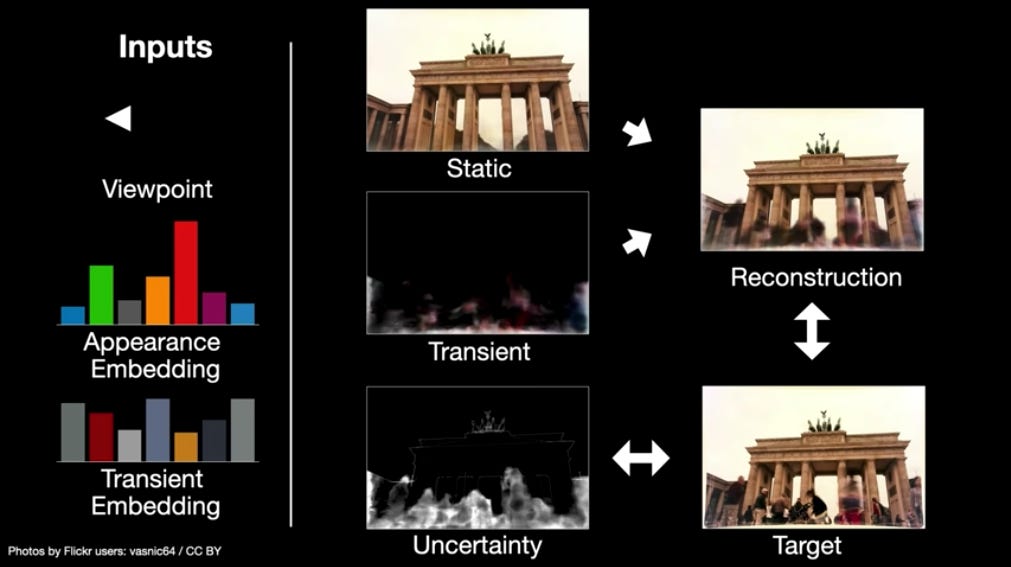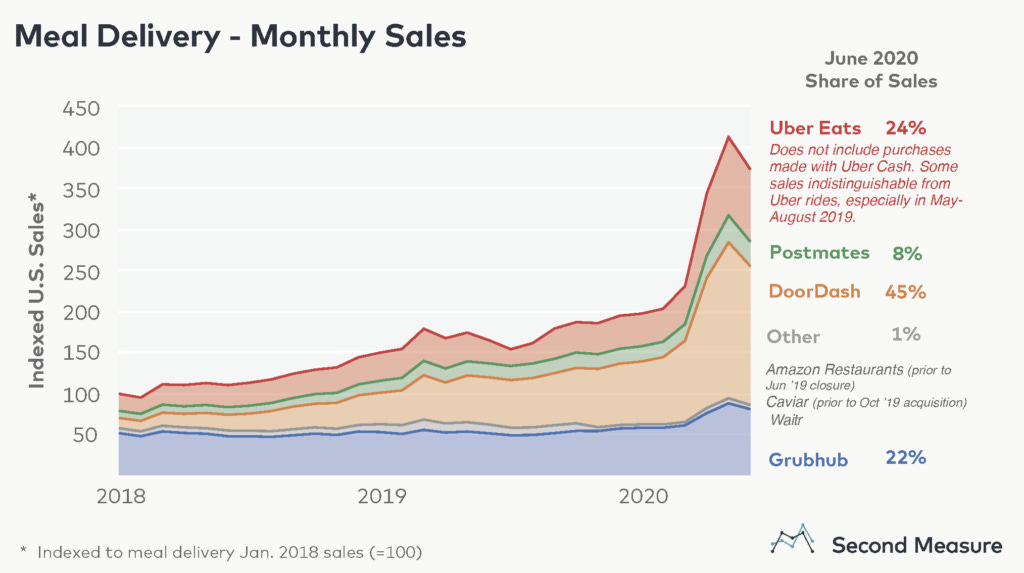Sunday Snapshots (9th August, 2020)
Tactical skills, Democracy in America, 3D landscapes from 2D images, DoorDash and grocery delivery, Weight of Gold, Lego and UX, and The Inner Ring
Hey everyone,
Greetings from Washington, D.C.!
Something I've been pondering on: As a part of my move to D.C., I've been building – okay, maybe just assembling – a lot of furniture which always takes me back to shop class in high school. The smell of freshly cut timber, the dozens of tiny cuts, and the satisfaction of sanding down your work as it progressively became smoother – all took me out of my head and into the present moment. It was peak flow state. The newsletter has become my main "hobby" and as it is conceived of and written in the world of bits, I don't feel in touch with my tactical senses anymore. Workouts and walks are great but they are more means to an end. The first is intended at avoiding the notorious beer gut owned by all male members on both sides of my family and the latter is intended to combat my constant fidgeting on phone calls. So there is a tactical skills-shaped hole in my life. I'm not quite sure how to fix it. Any ideas are welcome. Accountability buddies are more welcome.
With that more-self-indulgent-than-usual intro out of the way, let's dig into this week's Snapshots, in which I want to talk about:
Democracy in America by Alexis Tocqueville, the Algorithm revolution, and confessing to strangers
Reconstructing 3D landscapes from 2D images
DoorDash gets into the grocery business
Weight of Gold, Lego Interface Panels, and The Inner Ring
Book of the week

To the extent that there is a global culture, it is dominated by Anglo-American culture. And modern Anglo-American culture might as well be called American culture with the proliferation of its TV shows, the ubiquity of its tech companies, and the use of the US dollar as the currency of trade. This culture has been shaped relatively recently and I feel comfortable with this modern American history with its heavy leaning towards the executive branch. But that modern history has been shaped by events and structures that were put in place when this now mighty superpower was a vulnerable newborn in its cradle.
That newborn was what Alexis Tocqueville observed in 1831 when he and his friend Gustave Beaumont came to America from France to study the American prison system. But like students procrastinating on studying for their final exams, they studied everything else except the American prison system. So, Democracy in America is one of the best procrastination-fueled projects in history.
I am reading the book to fill in the gaps in my knowledge of early American history.
Here's what I picked up from the first hundred pages:
Equality of opportunity: What Tocqueville offers the classic outsider's perspective – that much needed degree of separation when evaluating phenomenon. He emphasizes the idea that democracy offers equality of opportunity. The opportunities were of course only offered to free men and women. What’s interesting is his acknowledgment of how the strength that comes from equality has some structural weakness:
Such a society [one with perfect equality] would be less brilliant than an aristocracy but also less plagued by misery. Pleasure would be less extreme, prosperity more general. Knowledge would be less exalted but ignorance more rare. Feelings would be less passionate and habits milder. There would be more vices and fewer crimes.
He continues:
All men being equally weak, each would feel equally in need of his fellow man’s support and, knowing that cooperation was the condition of that support, would readily see that this private interest was subsumed in the general interest. The nation taken as a whole would be less brilliant, less glorious, and perhaps less powerful, but the majority of citizens would be better off.
Algorithmic revolution: The emphasis on the “ongoing democratic revolution” in the book has strong parallels to what I’ve been reading about algorithms. While algorithms have been around for while, I think TikTok is the first example that managed to become mainstream of how things can go wrong when the old world of national security and regulations collides with the new world of pure algorithmic networks. So strong were the parallels that I found myself doing this on the page:

Paradoxical peace: I’m not quite sure if this passes a rigorous stress test but an interesting thought:
Society is tranquil not because it is conscious of its strengths and well-being but, on the contrary, because it believes itself to be weak and infirm. It fears that the slightest effort might do it in. Everyone senses that something is wrong, but no one has the courage or energy necessary to set it right. People feel desire, regret, sorrow, and joy, but nothing visible or lasting comes of it, much as the passion of an old man culminates in impotence and nothing more.“
Confessing to strangers: Something a bit more poetic:
A stranger sitting at fireside with his host will often hear important truths that might be withheld from a friend. With the stranger it is a relief to break an enforced silence, and the stranger’s indiscretion need not be feared because his stay will be short.
This is turning out to be a great read. Since this is a longer book than usual (800+ pages), I'm going to try something new. I'm going to get back to it at the end of this month/start of next month – giving me the month to read and digest the book slowly –and publish a long form summary. Meanwhile, next week’s Snapshots will feature a new book. If you want to read along, get a copy here.
Long read of the week
Reconstructing 3D landscapes from 2D images
This delightful project by researchers at Google Brain is pretty neat. They are able to reconstruct 3D scenes with maneuverability from 2D images of famous buildings.
To do this, they take the image and break it up into three parts:
A static image of the buildings with an edge detection-like process
A transient image of everything else in the image – people, lighting, etc.
An uncertainty image that captures stuff which the algorithm cannot decide to put into either 1 or 2.

These 3 buckets get stitched together across thousands of photographs from different POVs to create the 3D landscape. This has obvious applications in automated systems like driving and logistics, video game engines, and virtual reality. Truly impressible work.
Business news of the week
DoorDash gets into the online delivery business via The Verge
DoorDash is getting into the grocery market, following the lead of UberEats. With the company leading the restaurant food delivery wars, its natural for them to try to extend its advantage in lateral markets.

Let’s look at three lenses through which to analyze this decision:
Markets and Margins: The size of the US online grocery market is about $30 billion. While that figure will undoubtedly grow, it’s enough for 2-3 large companies to thrive. Most importantly, it take DoorDash from a very tough business – restaurant food delivery – to the slightly easier business of grocery delivery with its regular periodicity and greater ability to white label. For example, while people are loyal to particular restaurants and might not want an UberEats burrito, but they don't particularly care about where their potatoes come from.
Coronavirus: Due to COVID-19, people are staying at home more and eating out less. While the overall revenue from restaurants has certainly shrunk, part of that has been siphoned away to in-person groceries, meal kit subscriptions, restaurant food delivery, and yes, online groceries. People are cooking at home more. This is an attempt to capture that market. Through this lens, the move is less convincing. The broader trend is that people don't eat as much at home anymore, so any change in that behavior is likely temporary.
Competitors: There are a few giants in the grocery game already. Walmart with its coverage of 90% percent of Americans who live within 10 miles of a store. Amazon with its relentless.com (click that link for an ice-in-his-veins look at Bezos) branded T-shirt looming over everyone and everything. Uber with its commoditized logistics platform and willingness to constantly throw new business lines on the wall to see what sticks. Instacart with such a stronghold on the space that it's inspiring its own arms race. This is going to be tough to crack for DoorDash.
All thoughts on this are welcome. Just reply to this email.
This section is part of my ongoing series about food delivery apps. Check out the first one about Chowbus. In some ways, I see Chowbus as the thin end of a wedge. Think about the opportunity in the Asian food vertical – bringing all those mom and pop Asian grocery stores online. More to come on this soon.
Odds and ends
A mixed bag of things this week:
🏅 Weight of Gold: A new documentary about the mental health problems faced by Olympic athletes. Spearheaded by Michael Phelps, Olympians discuss how the build up of years for a few minutes (or seconds) of their lives take a toll on their psyche. I didn't think I could feel bad for someone with a swimmer's body but I guess I was wrong. Complement it with this story about Milorad Cavic who lost to Michael Phelps in the 2008 Beijing Olympics and how the loss continues to haunt and define him. Weight of Gold is now streaming on HBO.
🧱 The UX of Lego Interface Panels: Read this masterclass in design disguised as an article about legos by George Cave. It's so good and fun to read that I don't want to spoil it. Check it out for yourself.
⭕ The Inner Ring: C.S. Lewis writes about being in The Room Where It Happens and how we overestimate how good that will feel. An interesting counter-point to the typical view of "Get a seat at the table and then push your agenda" method.
That wraps up this week’s newsletter. You can check out the previous issues here.
If you want to discuss any of the ideas mentioned above or have any books/papers/links you think would be interesting to share on a future edition of Sunday Snapshots, please reach out to me by replying to this email or sending me a direct message on Twitter at @sidharthajha.
Until next Sunday,
Sid